How to Start a Music Blog | 8 Chart-Topping Steps to Success
If you click to purchase a product or service based on our independent recommendations and impartial reviews, we may receive a commission. Learn more
Around 68% of adults listen to music every day, and – with new artists and genres popping up all the time – the music industry is big business. It’s not just for those climbing their way to chart success either. The music industry is full of like-minded music lovers who are harnessing their passion to follow their dreams.
With the music industry so popular, there’s never been a better time to start your own music blog. You can use a music blog to connect with industry contacts and musicians, discover artists you enjoy, and even promote your own work.
If you’re interested in music – whether that’s playing, producing, or listening – then you should seriously consider starting a music blog.
But where to begin? If you’re overwhelmed at the thought of getting to grips with all of the aspects that come with starting a music blog, then read on – this article has everything you need to get going.
1 Find Your Music Niche
The first thing you’ll need to do once you’ve decided to start a music blog is to find your niche.
Firstly, have a think about what it is that you want to write about, and what you can do to make your blog stand out from the crowd. There are already thousands of music blogs out there, so you’ll need to find a way to make yours different.
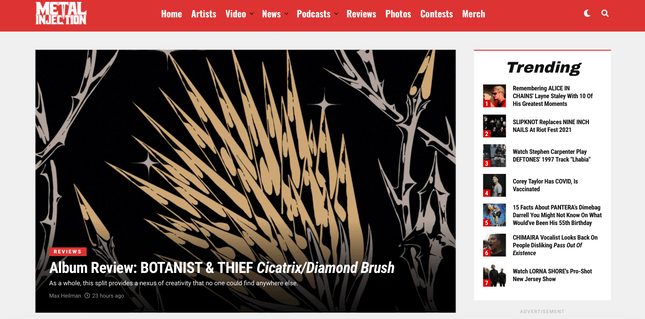
Think about which areas of music you love, or have experience with. The important thing to remember is that you can’t provide everything – so don’t try and spread yourself too thin, by covering all genres and content types.
Instead, focus on key areas that you can offer value in, and that will allow you to build up an engaged and interested audience.
Some examples of the type of niche you could choose include:
- Focusing on different music genres such as rock, classical, or country.
- Focusing on artists and music events in a specific location such as individual states, cities, or countries.
- Creating specific content such as reviews or interviews.
- Using your blog to promote your work.
2 Create a Brand
To stand out in an already crowded online market, you’ll need to build your own brand.
Building a brand refers to everything from choosing your blog name, creating a logo, nurturing a tone of voice that you use throughout your posts. Brand-building is also in the fonts and colors you select to feature across your website, as well as any other platforms or materials you create content for.
Your brand is like your blog’s personality, in that it allows people to recognize and relate to your content. If a user sees your blog material on social media or in an online magazine, they should instantly be able to recognize the brand elements that you’ve created – no matter what the medium.
Make sure you spend time creating your brand to match the kind of content you’re creating. Have a think about how you want to be positioned within the music marketplace to help inform your decisions, and build a brand you’ll be proud of.
3 Buy a Domain Name
One of the most important decisions you’ll make when starting your music blog is choosing your domain name.
Put simply, a domain name is what a user types into the address bar to access your website. For example, the domain name of this website (Website Builder Guide) is https://www. websitebuildingguide.com. Your domain name is the unique name of your website, and how people will find your blog.
When choosing your domain name, it’s important to ensure that it’s an accurate reflection of your brand’s content, and isn’t too similar to an existing music blog (or any other brand). Try to be creative, but remember – it’s always best to keep your music blog’s domain name relatively short and simple, so that people will remember it easily.
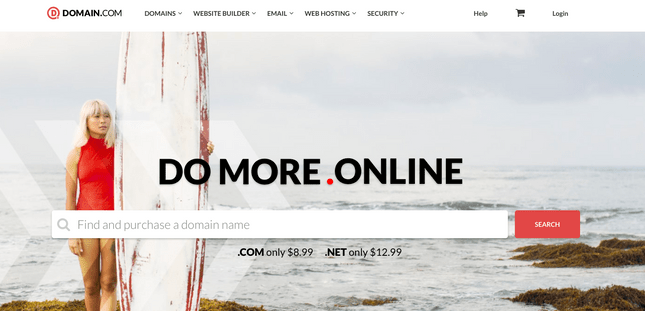
You can purchase your domain name from a domain registrar. There are multiple registrars you can use, but we recommend ones such as domain.com and Bluehost as being the best domain registrar options.
Domain name prices tend to be reasonable, provided you don’t try to purchase a domain name that’s already in use and has built up a strong authority. Normally, a domain name will cost between $10 and $15 per year. Domain names work on an annual subscription basis, so always remember to renew your domain in plenty of time to avoid your blog experiencing downtime or – worse – someone else swooping in and stealing your domain.
4 Sign Up to a Blogging Platform
Once you’ve decided on your niche, created your brand, and bought your all-important domain name, it’s time to choose a blogging platform.
There are multiple different platforms you can choose from to build your website. Using a platform such as Squarespace or Wix is the best choice. They give you the freedom to customize your templates, whilst still being easy to use and require no additional code.
Most blogging platforms also come with excellent customer support should you face any unexpected hurdles, and their fixed pricing plans make it easy for you to budget your music blog expenses.
Our top three website builders which make the best blogging platforms are:
Squarespace
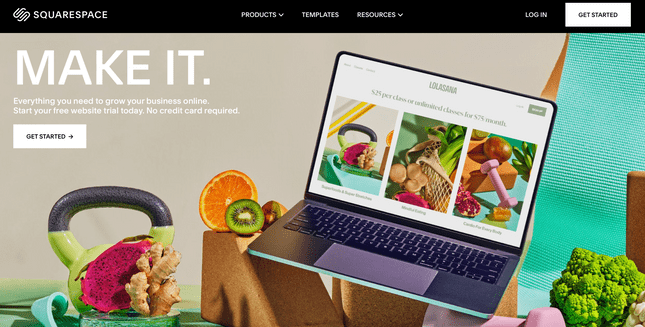
Squarespace is one of the most popular website builders, and offers 113 different templates to choose from. Plans start at just $16 per month and the latest version, Squarespace 7.1, allows for more design customization than ever before. You don’t need to be a technical expert either, as simple Squarespace templates require no extra code to make them your own.
Wix
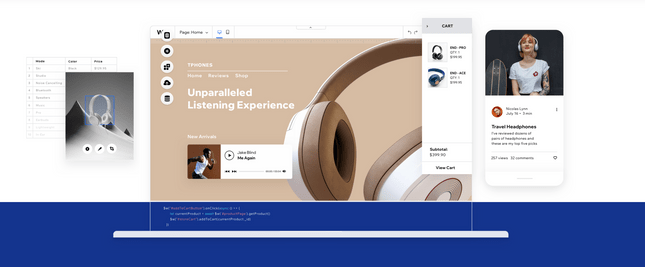
Wix is a great platform option for beginners, with drag-and-drop functionality allowing you to customize a website without the need to know code. Wix offers over 800 templates that you can fully customize to make your blog look exactly how you want it to, and reflect the finer points of your musical niche. Plans start at just $16 per month.
Weebly
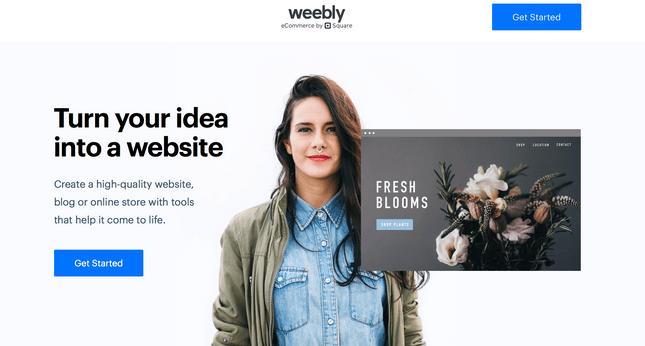
Weebly is a platform that not only allows you to build a website, but also provides you with all the ecommerce and SEO tools you’ll need to grow your music blog.
Weebly has plans that start at as little as $6 per month and is a “what you see is what you get” website builder. That means that you’ll build your page pretty much exactly as it will be viewed by the user, so there’s no switching to a back-end, or fiddling around with code.
Getting started on a blogging platform is simple. Once you’ve chosen the one that’s right for you, simply sign-up, select your plan, and connect your domain. Then, you’ll be ready to get customizing!
5 Choose and Customize a Theme
A theme is, essentially, a template for how your blog will look. If you decide to go for a platform such as Squarespace, Wix, or Weebly then you’ll be able to pick from hundreds of different templates.
Once you’ve chosen one you like, you’ll be able to customize it to make it individual to your music blog, and ensure it closely aligns with the brand you’ve created. You can customize elements such as fonts, colors, and images with ease. Some themes even allow you to drag and drop elements such as text and images, making it fully customizable and unique.
When choosing and customizing your theme, always remember to think about the user experience, and ensure that it’s easy for visitors to navigate your website and read your content. Think about what colors work well together, and which fonts are the most accessible.
6 Install Apps
Once you’ve started customizing your theme and have a strong idea about what you’d like your blog to look like and do, you can also start to think about installing apps.
Most website builders let you add apps to your theme, which help to improve the functionality and user experience of your blog.
You can download and install apps to your theme which will:
- Provide a social media share option, allowing users to share your content directly on their own social media channels.
- Embed videos from platforms such as YouTube to help showcase music.
- Link to Spotify playlists.
- Embed a contact form so that users can get in touch with you directly, in a click
7 Plan and Create Your Blogs Content
Now it’s time for the part you started a blog for…the blogging! Once your website is all set up, you can begin planning and creating the content.
The first content you need to create is for your key pages, such as your homepage and about us page. These are two of the most important pages on your website. Your homepage layout should welcome users to your website and depict your brand, whilst your about us page content is your chance to provide your audience with all of the information they need to understand more about you and your blog.
When thinking about the blog posts that you want to create, it’s always a good idea to plan ahead. Try to create a content strategy for your blog, taking into account elements such as blog SEO and the keywords you want to target, as well as any key events or calendar dates that you can utilize.
Undertake some audience research to find out what kind of content your audience wants to read to ensure you’re successfully reaching your target demographics.
Having a content plan and creating your content ahead of time also means that your blog will never be without fresh content, which will help keep your online audience engaged.
8 Promote Your Music Blog
Once your content is live, it’s time to start promoting your music blog.
Telling the world about your blog can be intimidating, but it’s also crucial. After all, if nobody knows it’s there, then how are you ever going to grow an audience? If you want your blog to be successful, then, marketing it to your target audience is key.
Some of the best ways to market your music blog include:
Social Media
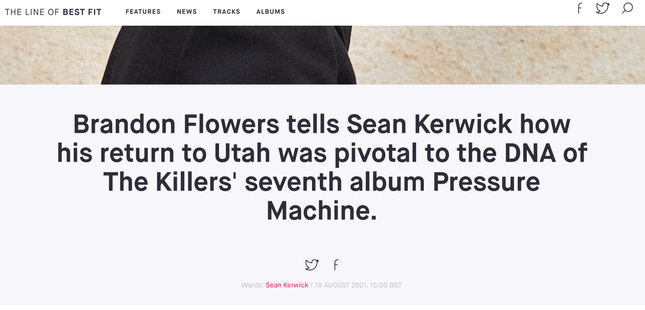
Set up social media accounts for your blog and make sure they’re linked to your website so that visitors can click through and follow you.
You should also aim to share every new post you create straight away, to highlight to your followers that there’s new content live that they won’t yet have seen. You can also keep sharing your older, evergreen content too, to keep building brand awareness. Follow other relevant accounts and engage with their content to help create an online community on social media that will convert into blog readers.
SEO
SEO stands for Search Engine Optimization, and is the process of optimizing your website so that it appears in Google search results. If you want people to find your blog, you’ll need to invest time into your SEO. Think about the keywords that you want to target, for instance, and ensure your content is optimized for them.
You’ll also need to begin building a backlink profile for your website. Take some time to list key industry websites that you think may be willing to link to your content, and begin reaching out to them via phone or email.
Email Marketing
Once you’ve begun to build up a regular readership, one of the best ways of keeping in touch with them is via email marketing. Add a sign-up form to your website so that if somebody reads one of your blog posts and enjoys it, they can be kept in the loop when you publish new content, or have relevant news to share.
How to Start a Music Blog: Summary
If you’re passionate about music and want to start a music blog then it can be daunting – particularly if you’ve got limited or no experience with building and running a website.
You don’t need to give up before you’ve begun, though. Following the tips in this article will help to get you started, and will give you the foundations to build a successful music blog.

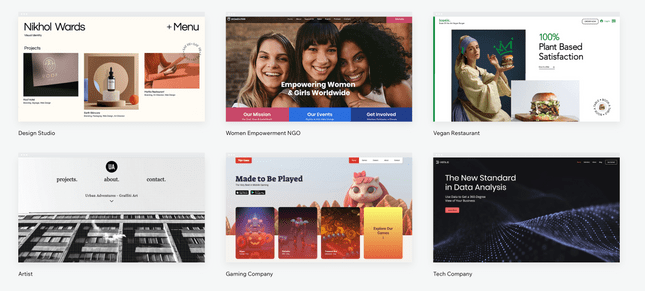





Leave a comment